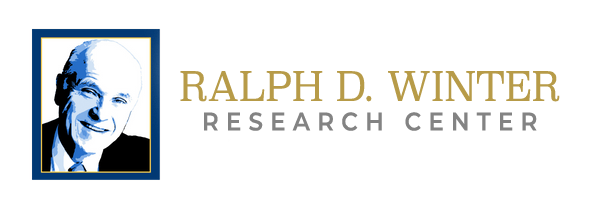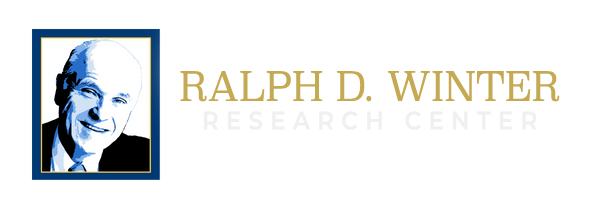Book Notes: Clifford Geertz, After the Fact: Two Countries, Four Decades, One Anthropologist
Reading Clifford Geertz’s autobiographical reflections on four decades as an anthropologist, I was struck that in many ways his quandaries parallel those of the cross-cultural worker seeking to represent Christ. This will not be a proper review of Geertz’s book, just some thoughts interwoven with some of his more provocative statements.
Clifford Geertz, After the Fact: Two Countries, Four Decades, One Anthropologist, Cambridge, MA: Harvard University Press, 1995.
Geertz is impressively humble and strongly affirms the uncertainties of anthropology, expressing his sense of helplessness in “coming too late and leaving too early” (63), never getting a sufficiently full picture. He suggests that “Floundering through mere happenings and then concocting accounts of how they hang together is what knowledge and illusion alike consist in.”(3)
“The anthropologist…is a manic tinkerer adrift with his wits” (20); not a bad description of a missionary. Those who cannot handle the tinkering, who want a clear plan, usually do not last very long (or end up in a rut). This sentiment comes to fuller expression later in the book:
Anthropology, or anyway social and cultural anthropology, is in fact rather more something one picks up as one goes along year after year trying to figure out what it is and how to practice it than something one has instilled in one through “a systematic method to obtain obedience” or formalized “train[ing] by instruction and control.” It is, of course, taught, sometimes fiercely with lots of rules to obey and authority to respect, and it has its own ways, from book reviews to tenure decisions, of inflicting “punishment intended to correct.” But the “specified character or pattern of behavior,” to say nothing of the “moral or mental improvement,” does not very reliably emerge. The blurred image is earned: there is indeed a lack of firm edge and defined target to what we do, however hard some may work to disguise the fact. Perhaps this is a scandal, perhaps it is a strength. But in either case it makes any attempt to characterize the field synoptically something of an exercise in special pleading. (97)
This is very well said. A synopsis of missionary life that prepares one for all the variety of engagements and experiences one could face on many continents cannot succeed; successful preparation is preparing to expect and respond well to the unexpected.
Geertz makes a stimulating observation about the two countries mentioned in the title of his book, Indonesia and Morocco: “There is something in the way these places present themselves, to themselves and to others, as well as in the way we look at them and the hopes we have for them, that systematically misleads.”(26) That surely can be generalized to most countries and cultures, and breaking initial illusions is an important aspect of missionary life (as well as breaking secondary illusions, and tertiary, etc.).
The uncertainties and changes involved in every culture are of course a major part of Geertz’s reflections, and the book should be read rather than leaning on my few quotations. Here is a good summary statement:
…a conception of culture as a massive causal force shaping belief and behavior to an abstractable pattern—what has been called the cookie-cutter view—was not very useful either for investigating such matters or for conveying what one claimed to have come up with from having investigated them. Something a good deal less muscular is needed, something a good deal more reactive; quizzical, watchful, better attuned to hints, uncertainties, contingencies, and incompletions. (44)
Of course, Geertz had to reflect on the meaning of “Islam” so for this short paper I have chosen this statement:
“Islam” at this period [early 1950s in Indonesia] appeared less a stance than a movement (or more exactly, for there were internal divisions, not insignificant, a collection of movements) . . . . A pluralistic, conflictual view representing Islam neither as veil nor as bedrock . . . . I wanted to call the book I wrote about all this Religions in Java. But the publisher, a believer, apparently, in ethnographical kinds, natural labels, and programmed audiences, wouldn’t have it, and it emerged, suitably normalized and against its argument, as The Religion of Java. (55)
In one of my favorite lines in the book, Geertz asserts that “…great informants make great anthropologists.”(61) How much “successful” missionaries owe to “informants” who help them to see and understand what is happening around them! Geertz later referred to such an informant: “He introduced us to anyone we wanted to meet and to many people we hadn’t the wit to know that we wanted to meet” (109); and this applies beyond people to ideas, books, places, events, etc.
One crossing cultures carries expectations and ideals, often vaguely defined hopes. “By going somewhere, different and distant, and staying there awhile, one could make up one’s mind. Or, perhaps more exactly, have it made up for one.”(115)
“The Field” itself is, or at least it was in these two cases, a powerful disciplinary force: assertive, demanding, even coercive. Like any such force, it can be underestimated or otherwise occluded, and by some individuals in either case was. But it cannot, at least if one is not going to disengage altogether, as in both cases some individuals did, be simply evaded. It is too insistent for that. (119)
And so we learn; too often reluctantly and inadequately, but conditions (and the Spirit of God) do not allow one to be a catalyst, an unchanged change agent. Geertz promotes hindsight as the only true way to gain understanding: “You see what you have been doing (if you see it at all) after you have been doing it.”(98)
Of all the bromides about the past, that it is prologue, that it is a bucket of ashes, that it is another country, that it is not even past, that if you don’t remember it you are condemned to repeat it, that it is the debris that piles up in front of us as we back into heaven, about the only one that comes to much as usable truth is Kierkegaard’s “Life is lived forward but it is understood backward.” (166)
Older generations of missionaries and anthropologists mostly lived with assumptions about life and the world that are no longer considered acceptable. This has raised serious questions and complications related to the ongoing work of both anthropology and mission. Geertz is insightful here, and unyielding regarding his discipline.
The capacity of language to construct, if not reality “as such” (whatever that is), at least reality as everyone engages it in actual practice—named, pictured, catalogued, and measured—makes of the question of who describes whom, and in what terms, a far from indifferent business. If there is no access to the world unmediated by language (or anyway by sign systems) it rather matters what sort of language that is. Depiction is power. The representation of others is not easily separable from the manipulation of others. (130)
It is simply the condition of things that anthropology, like social science in general, is a far more difficult line of work, difficult and uncomfortable, now that the “we define, they are defined” assumptions that sustained and guided it in its forming phases have been brought into question. There is a need for extensive revisions of our notions as to what anthropology is, what its aims should be, what it can reasonably hope to accomplish; why it is anyone should pursue it. (130)
A disciple of Christ will want a stronger affirmation of the value of cross-cultural life and service than Geertz finally provides for anthropology, but I still find resonance with this closing statement of the book, considering the challenging effect of
…the post positivist critique of empirical realism, the move away from simple correspondence theories of truth and knowledge which makes of the very term “fact” a delicate matter. There is not much assurance or sense of closure, not even much of a sense of knowing what it is one precisely is after, in so indefinite a quest, amid such various people, over such a diversity of times. But it is an excellent way, interesting, dismaying, useful, and amusing, to expend a life. (168; italics original)

